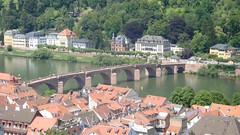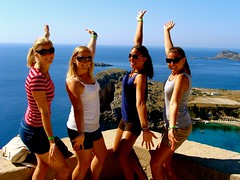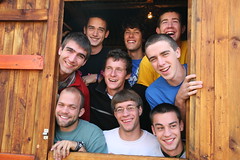The jump, free travel, and Cape Town
Reports from South Africa
Reflections after visiting the Apartheid Museum
The morning of the marimba
Soweto – wonderful hosts and hospitality
South Africa – first impressions
Report from Reichelsheim
 Over the past week in Reichelsheim we have done less work and more group activities. On Wednesday my work group continued to dig our drainage ditch around the chapel at the castle. We finished the digging process and were ready to start putting in the drainage … Continue Reading ››
Over the past week in Reichelsheim we have done less work and more group activities. On Wednesday my work group continued to dig our drainage ditch around the chapel at the castle. We finished the digging process and were ready to start putting in the drainage … Continue Reading ››
Travel to Greek island of Rodos
 Free travel on the beautiful Island of Rodos! We spent our days relaxing, swimming, and enjoying the beauty, the friendly Greek people and their fantastic food. While on the island, we went on three tours.
The first one was to the island of Symi, which, according to … Continue Reading ››
Free travel on the beautiful Island of Rodos! We spent our days relaxing, swimming, and enjoying the beauty, the friendly Greek people and their fantastic food. While on the island, we went on three tours.
The first one was to the island of Symi, which, according to … Continue Reading ››
The Turkish community near Marburg
 We recently arrived in Marburg, Germany. It is a beautiful city, home to a castle where the Grimm brothers based many of their fairy tales on. The university town has 80,000 people of which about 20,000 are university students. The atmosphere at Marburg is very friendly … Continue Reading ››
We recently arrived in Marburg, Germany. It is a beautiful city, home to a castle where the Grimm brothers based many of their fairy tales on. The university town has 80,000 people of which about 20,000 are university students. The atmosphere at Marburg is very friendly … Continue Reading ››
